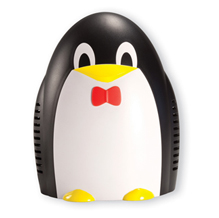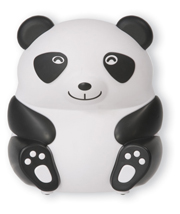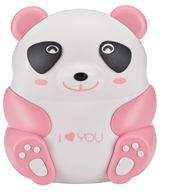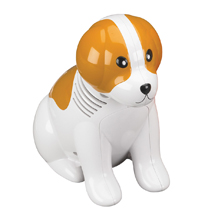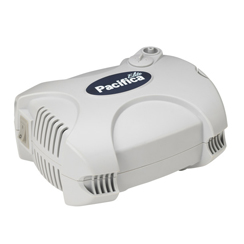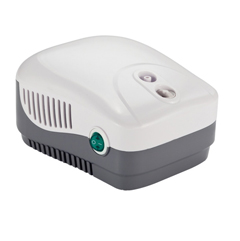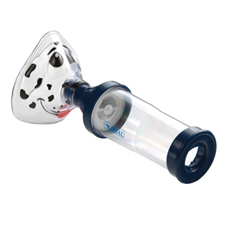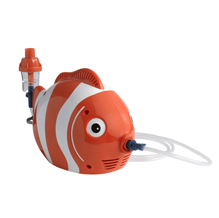NEB GROUP OF ARIZONA
RESPIRATORY CARE SOLUTIONS
Neb Group of Arizona has you covered with more than 15 years experience in supplying durable medical equipment to over 700 pediatric and family medicine offices, urgent cares and emergency rooms nationwide. All products listed are prescription-only devices and can only be obtained through a prescription from a medical professional. Please have your primary care physician or other healthcare professional fax or email a prescription to get started! If you need new tubing, mask, filters, etc. for your nebulizer machine please contact us.
Phone: (480)535-6933
Fax: (866)561-8331
Email: billing@nebgroupofaz.com
Have questions or comments on our products or the best way to obtain a nebulizer? Drop us a line below!
FAQ
Cleaning Instructions:
1. With the power switch in the "Off" position, unplug the power cord from the wall outlet.
2. Disconnect the tubing from the air-inlet connector and set it aside.
3. Disassemble the mouthpiece or mask from the cup. Open the nebulizer by turning the cap counterclockwise and removing the baffle.
4. Wash all items, except thin long tubing, in a hot water/dishwashing detergent solution. Rinse under hot top water for 30 seconds to remove detergent residue. Allow to air dry.
5. For reusable nebulizers only, they can be cleaned daily in dishwater using the top shelf or by following the above cleaning procedure.
***The Drive Reusable Nebulizer is dishwasher safe, but do not place any Drive Disposable Nebulizer parts in an automatic dishwasher; doing so could cause damage.***
The following factors may make it more likely that your child has asthma:
* Another close family member has asthma
* Smoking in the home (including car)
* Allergy symptoms in your child
* Premature birth
Asthma may affect your child’s lungs for the rest of his/her life. Sometimes your child will feel better. Other times your child will feel worse because of the asthma.
What happens when your child’s asthma becomes a problem?
When your child’s asthma becomes a problem, his or her airways become much narrower. When this happens, your child has problems getting air in and out of his or her lungs.
3 things happen to narrow the airways when your child has aproblem with asthma.
1. The lining on the inside of the airways gets thick and swells. You will hear this called inflammation.
2. The muscles around the airways get tight. You will hear this called bronchospasm or bronchoconstriction.
3. The airways make a lot of a clear, thick liquid called mucus. This mucus is thicker than normal and may block the airways.
What can you do to help your child feel better?
There are some ways that you can help your child feel better:
* Learn more about your child’s asthma by asking your doctor questions.
* Make sure that your child takes all medicines exactly as your child’s doctor tells you to.
* Know what triggers your child’s asthma and try to stay away from these things (triggers are things that make your child’s asthma worse).
3 things happen to narrow the airways when your child has aproblem with asthma.
1. The lining on the inside of the airways gets thick and swells. You will hear this called inflammation.
2. The muscles around the airways get tight. You will hear this called bronchospasm or bronchoconstriction.
3. The airways make a lot of a clear, thick liquid called mucus. This mucus is thicker than normal and may block the airways.
* Learn more about your child’s asthma by asking your doctor questions.
* Make sure that your child takes all medicines exactly as your child’s doctor tells you to.
* Know what triggers your child’s asthma and try to stay away from these things (triggers are things that make your child’s asthma worse).
This information is a list of the common triggers that may bother your child. It also explains someways that your child can stay away from these triggers.
Infections, such as colds and flu:
1. Keep your child away from people who have a cold or the flu.
2. Make sure your child and your family wash their hands often, particularly when someone in your family is sick. Don’t share utensils and toothbrushes.
3. Ask your doctor about getting a flu shot for your child early in the fall.
Cigarette or tobacco smoke:
1. Do not smoke.
2. Stay away from any smoke. Smoke stays on your clothes and may make your child’s asthma worse.
3. Do not let anyone smoke in your home. Ask people to go outside to smoke. When you smoke in another room, the smoke goes through the rest of the house or apartment and will bother your child.
4. Do not let anyone smoke in your car.
Wood and oil smoke:
1. Keep your child away from the smoke of a fire place or wood stove.
2. Keep your child away from the smoke made by an oil heater.
Things that cause allergic reactions:
1. Keep your child away from things that cause your child’s allergic reactions, such as dust, mould, animals, and foods.
2. Find out if your child (over age 5) has an allergy to anything. Have him or her tested for allergies. Children with asthma do not always have allergies. But if your child has them, they may make your child’s asthma worse. For advice on controlling triggers that are allergens go to The Lung Association.
Air-pollution:
1. Listen for smog advisory warnings on the radio or go to Air Quality Ontario.
2. You may need to keep your child indoors when the pollution index is high. An air conditioned home or a shopping mall or public building that is airconditioned is better.
Other Factors:
Humid weather:
1. Try to keep your child in airconditioned environments.
Cold weather:
1. Make sure your child wears a scarf over the mouth and nose in cold weather. This helps warm the cold air before it goes into his or her airways.
Medicine: Some children with asthma may be sensitive to medicines with aspirin or ibuprofen in them.
1. If your child has this problem, before you give your child any medicine, make sure that the words ibuprofen, aspirin, ASA, and acetylsalicylic acid are not on the label.
2. Ask your pharmacist for medicines without aspirin or ibuprofen.
It is safe to give your child medicines with acetaminophen in them, for example, Tylenol® or Tempra®.
Aerosol or spray chemicals/products:
1. Keep your child away from strong smelling chemicals and sprays such as hair spray, household cleaners, and fresh paint. Wait for strong smells to disappear before letting your child come into a room.
For advice on controlling triggers that are irritants go to The Lung Association.
Exercise: Exercise or activity may triggeryour child’s asthma. Refer to Can your child with asthma be active and play sports to learn more about strategies for exercise.
What types of medicines might your child take for asthma?
Medicines for asthma can keep your child’s lungs healthy and keep your child’s asthma from getting worse.
This information explains the main types of medicines that your child may take for his or her asthma.
Many of the medicines that your child may take for his or her asthma are breathed in. Some medicines are swallowed. The medicines that are breathed in are called inhaled medicines. Some of the best inhaled medicines for asthma are called corticosteroids.
Inhaled medicines have been shown to be very safe in children with asthma. Your child can use them for years and grow to a normal adult height.
These medicines do not cure asthma, but they can help keep your child’s lungs healthy.
After taking an inhaled medicine, your child should rinse the mouth or take a drink of water or juice. This helps stop any thrush in the mouth.
The main types of inhaled medicines that your child may take for asthma are called controllers and relievers.
Your child should take a controller every day, even if he or she seems well. Make sure your child keeps using the controller until your doctor tells you it is OK to stop.
Your child will probably benefit from a daily controller medicine if he/she has any of the following:
* regular asthma symptoms
* frequent or severe asthma attacks
* abnormal blowing test (see What are the important things to remeber)
A reliever helps treat the signs of asthma such as a cough or wheeze.
Your child should use a reliever when he or she is having problems with asthma. When your doctor says your child is better, he or she should stop using the reliever every day. Your doctor may tell your child to use a reliever before he or she exercises.
Problems with asthma can start slowly over hours or days. The small changes that happen in your child’s body when he or she is having problems with asthma are called early warning signs.
Early warning signs are different for each child. You may find that they are not easy to see. Here are some common early warning signs.
Things that you can see or hear in your child:
* a cough that will not go away
* coughing until vomiting
* coughing at night
* wheezing
* trouble catching their breath
* tired soon after beginning to play/exercise
* breathing faster than usual
* grumpy, cranky, out of sorts
* signs of a cold
* sneezing
Things that your child may tell you:
“I’m tired
“My chest hurts.”
“It is hard to breathe.”
“There’s a funny noise (wheezing) when I’m breathing.”
* If you see any of these early warning signs, follow the action plan that you made with your doctor.
* If you do not have an action plan, talk to your doctor about making one. See the back of the brochure for an action plan you can use.
* unable to stop coughing and vomiting
* having trouble talking
* feeling unusually sleepy – difficulty waking them up
* lips or skin looking blue
* skin sucking in (indrawing) on the neck or chest as your child breathes
Have your child take his or her reliever medicine just as your child’s action plan says to.
Go to the nearest emergency department, or call an ambulance.
This information explains some of the things that your child can do. It also explains how to prevent your child from getting any signs of asthma during exercise.
* Make sure your child always starts and ends any exercise with easy, gentle exercises. These are called warm-up and cool-down exercises.
* Your doctor may tell your child to take his or her reliever medicine before exercising.
* Remember, a reliever medicine helps treat the signs of asthma such as a cough or wheeze. If your child uses this medicine 15 or 20 minutes before exercising, it may decrease your child’s asthma symptoms.
* If your child’s asthma gets worse when he or she exercises, your child should exercise for a short time and take breaks in between exercises.
Remember, if your child starts to wheeze while exercising, he or she should stop the activity. Your child should then follow the action plan that you made with your child’s doctor.
* You should follow the action plan that you made with your doctor. The action plan is a written plan that tells you and your child what to do every day to manage the asthma. This plan also explains what to do if your child’s asthma gets worse.
* You can help stop another problem with asthma if you try to keep your child away from the things that make his or her asthma worse (asthma triggers).
* If your child is 6 years of age or older, ask your doctor about a “blowing” test for asthma called Pulmonary Function Testing. This test is used for diagnosis and monitoring of asthma.

